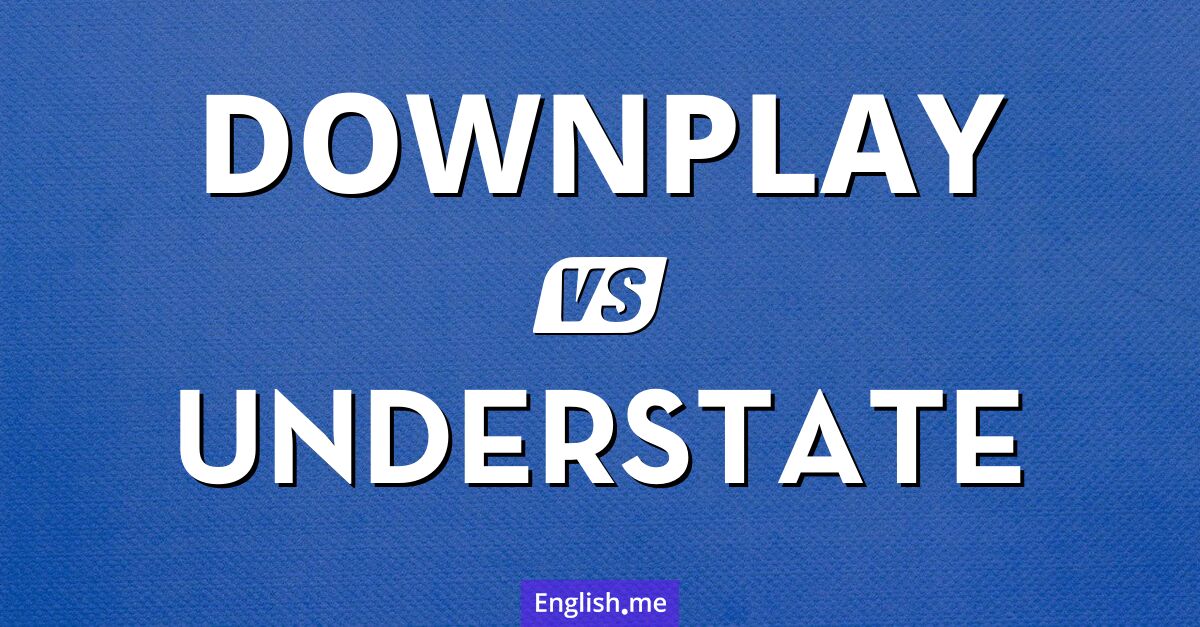Softening the impact: "downplay" vs. "understate"
Reviewed and edited by  Lloyd Cooper 30/11/2024, 10:51
Lloyd Cooper 30/11/2024, 10:51
English.me team member

 What is similar?
What is similar?
Both "downplay" and "understate" involve presenting something as less important or severe than it actually is.
 What is different?
What is different?
"Downplay" often implies an intentional effort to minimize or dismiss the significance of something, possibly to mislead or deflect attention. "Understate" typically refers to expressing something in a restrained or modest manner, without necessarily intending to deceive.
 Which one is more common?
Which one is more common?

 Examples of usage
Examples of usage
Downplay- The company tried to downplay the impact of the data breach.
- He downplayed his injury to stay in the game.
- Officials attempted to downplay the severity of the approaching storm.
- She tends to understate her achievements.
- The initial estimates understated the project's true cost.
- His humble speech understated the significance of his discovery.

 English
English español
español française
française italiano
italiano deutsche
deutsche 日本語
日本語 polski
polski česky
česky svenska
svenska Türkçe
Türkçe Nederlands
Nederlands